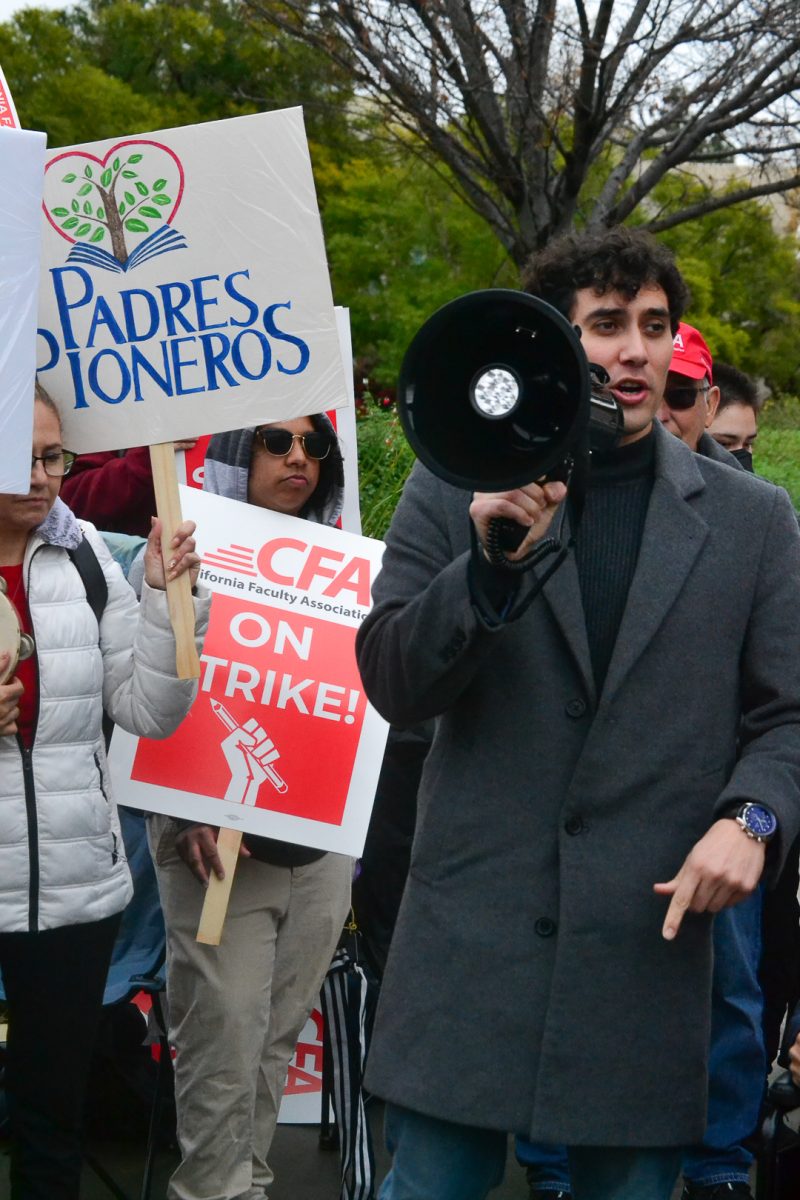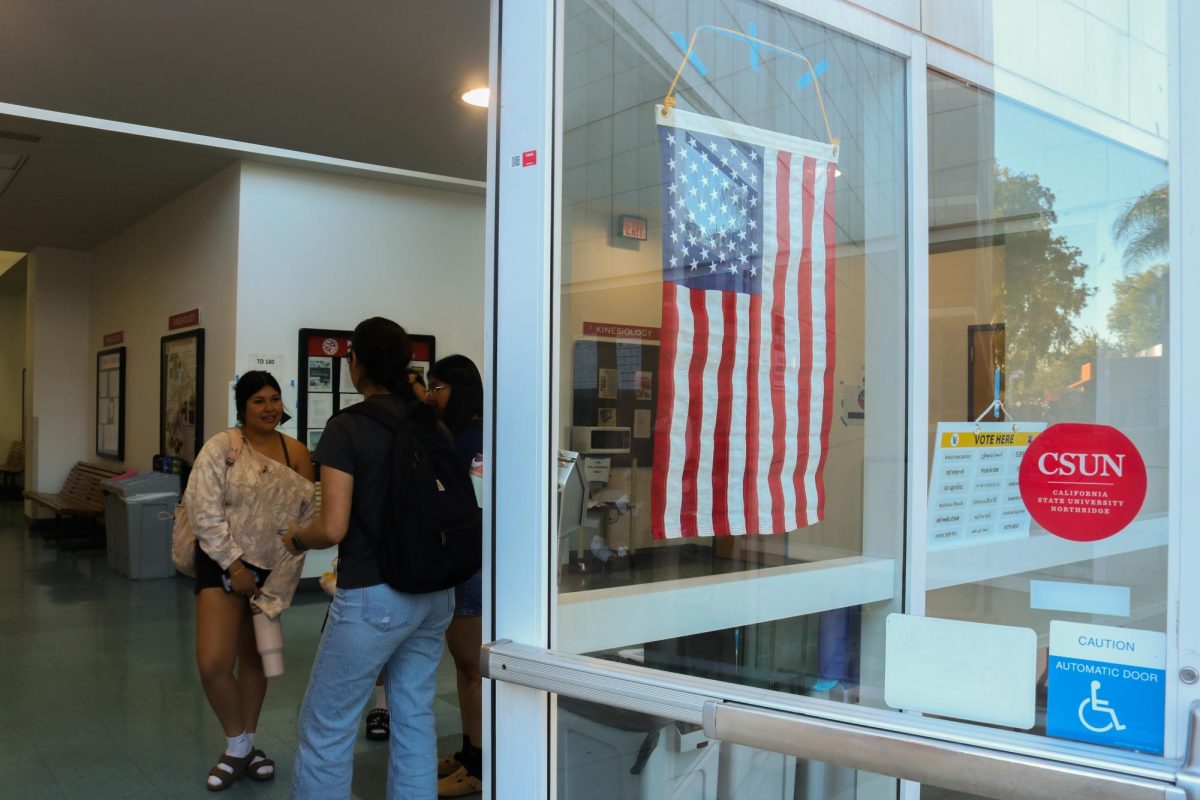A systemwide California State University faculty strike that was expected to last five days ended after just one. Now, some faculty members from across the CSU system are dissatisfied with the tentative agreement that brought the strike to an end.
The CSU administration and the California Faculty Association, the union representing 29,000 faculty members across 23 CSU campuses, negotiated for months to come to an agreement regarding multiple faculty concerns, which included a 12% general salary increase to keep up with rising inflation, and raising the salary floor for the lowest-paid faculty members.
The tentative agreement reached between the CSU and the CFA reportedly includes a 5% retroactive general salary increase, a $3,000 retroactive pay increase for the lowest-paid faculty on the two lowest salary levels, increased paid parental leave from six weeks to 10 weeks, and improvement of access to lactation spaces and gender-inclusive bathrooms.
However, some faculty members feel that the tentative agreement did not adequately address the concerns they were striking for.
Cal State Faculty United, a group consisting of CFA members who are dissatisfied with their leadership, took to Instagram to voice their dissent for the tentative agreement, urging fellow CFA members to vote “no” on the agreement in a post on their Instagram page.
Robert Ovetz, a professor of political science at San Jose State University and one of the members of the group, explained why he thinks that the faculty should vote “no” on the agreement, bringing the CFA and the CSU back to the negotiating table.
Ovetz said that since the tentative agreement was accepted, more faculty members have joined his cause, and that at least 100 faculty members have joined meetings they organized. The meetings were a part of their statewide campaign, in which they are urging fellow CFA members to reject the agreement.
One of Ovetz’s reservations is with the acceptance of a 5% general salary increase in the tentative agreement, since he and other faculty members had directed CFA leadership that 12% be their lowest asking point in the CFA open bargaining session.
“That doesn’t even get us above the rate of inflation over the last five years,” Ovetz said. “Even with that 5%, according to one of my colleague’s analyses, we’re still about 2.5% below the rate of inflation over the last five years.”
Another of Ovetz’s reservations is with the $3,000 pay increase for the lowest paid faculty members. He believes that he and other lecturers will see small benefits from this pay increase, which will not actually be enough money to address their needs.
“It doesn’t account for my very large class sizes,” Ovetz said. “It’s not enough for me to be able to teach in just San Jose State. I have to teach at two or three places to survive in the Bay Area, so this is still not adequate compensation for the work that we do.”
Ovetz said that he wants more transparency and democratization within CFA decision-making, specifically because the CFA leadership did not present the tentative agreement to the CFA members before deciding to call off the strike.
“It really disappointed a lot of people who put in a lot of time and effort into organizing the strike,” Ovetz said. “We put a lot of money and resources into preparing for the strike, only for it to be called off in less than 24 hours.”
James Martel, a professor of political science at San Francisco State University, also expressed some disappointment with the way CFA leadership called off the strike, but he has hope the future of the CFA will include more member participation.
“They made a decision to cut short the growing movement among the rank and file as we learned how to self-organize and strike, but I am confident that we can work with them to continue moving in a democratizing direction against an evermore privatized and ruthless CSU administration,” said Martel.
Diane Blair, a statewide officer for the CFA and member of the CFA Board of Directors, maintains that calling off the strike was key to obtaining a deal with the CSU.
“I can tell you that careful consideration was given to the given agreement in light of the fact that the deal from the CSU was contingent on us calling off the strike,” Blair said. “It was a difficult decision because while much was gained in the agreement, it was not a perfect deal.”
Blair said that she believes that the agreement represents a win in negotiations for salary increases for the faculty, and that she ultimately believes that CFA leadership is responsible for the decision to call off the strike.
“It is the CFA Board of Directors who are charged with both calling for the strike and calling off the strike if we believe a tentative agreement should be brought to our members for their consideration.” Blair said. “The CFA members will ultimately decide to accept or reject the TA.”
In a press release, CSU chancellor Mildred García expressed her approval of the agreement reached with the CFA which she believes allowed the CSU and the union to balance their respective concerns.
“I am extremely pleased and deeply appreciative that we have reached common ground with CFA,” said García. “The agreement enables the CSU to fairly compensate its valued, world-class faculty while protecting the university system’s long-term financial sustainability.”
Although it remains to be seen if the tentative agreement is satisfactory to the faculty, they will vote to ratify the agreement electronically from Feb. 12 to Feb. 18.






